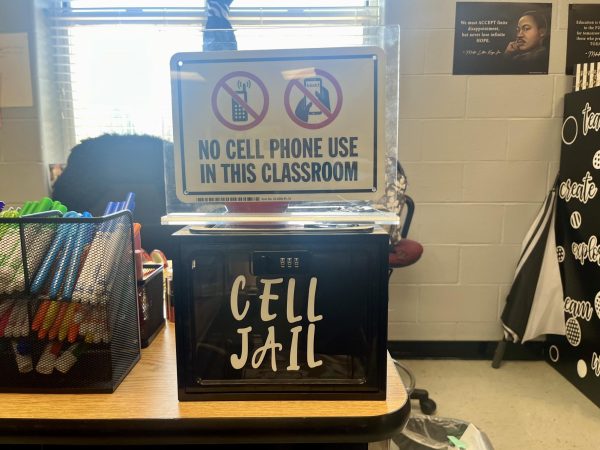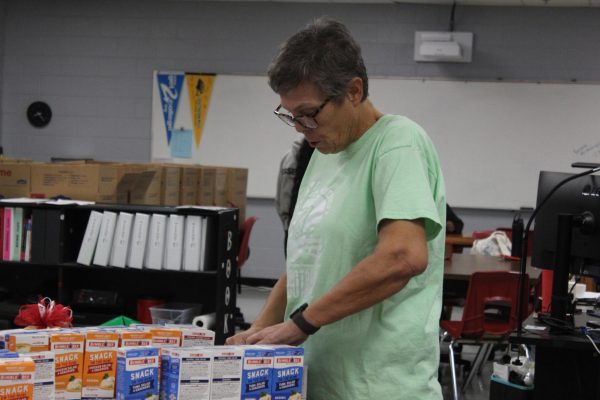Students encouraged to just say no to bullying
As depicted in this photo illustration, bullying can affect a child’s mental state and can contribute to students feeling socially isolated, worthless or depressed.
Although National Bullying Prevention Month is October, that doesn’t mean the topic should be ignored for the rest of the year.
According to the website stopbullyingnowfoundation.org, “Bullying is when a person or group repeatedly tries to harm someone who is weaker or who they think is weaker. Sometimes it involves direct attacks such as hitting, name calling, teasing or taunting. Sometimes it is indirect, such as spreading rumors or trying to make others reject someone.”
A healthcare website, findapsychologist.org, states that 70 percent of students report that bullying is a problem at their school. Bullying can also affect a child’s mental state.
According to findapsychologist.org, “Bullying can contribute to students feeling socially isolated, worthless or depressed. In addition, the psychological effects of bullying can last well into adulthood and increase a person’s chance of experiencing things like anxiety disorders.”
Some victims of bullying feel that they can’t tell anyone about their situation, which could lead to depression and even suicide.
“Suicide is one avenue students select when faced with a bullying situation,” Center Hill High School counselor Danielle Brown said. “When a person comes to that point, where they don’t feel they have another option, it is important for them to seek help.”
If you are experiencing bullying or thoughts of suicide, talk to someone that you trust. This can be a friend, a parent, a teacher or administrator.
“Find someone to talk to,” Brown said. “It doesn’t have to be your parents. You can talk to any adult in this building and they will point you in the right direction to get the help you need. In my experience, students benefit from having someone to talk to or to be able to say ‘I’m sad/angry/frustrated’ without the person judging them.”
If you don’t think that you can talk to anyone else, call 1-800-273-TALK (8255) for 24-hour assistance. You’re not alone.

Rebecca "Paige" Brick
Co-Editor-in-Chief, The Pony Express
Paige Brick is Co-Editor-in-Chief of The Pony Express for 2019-2020. She is a senior and...









